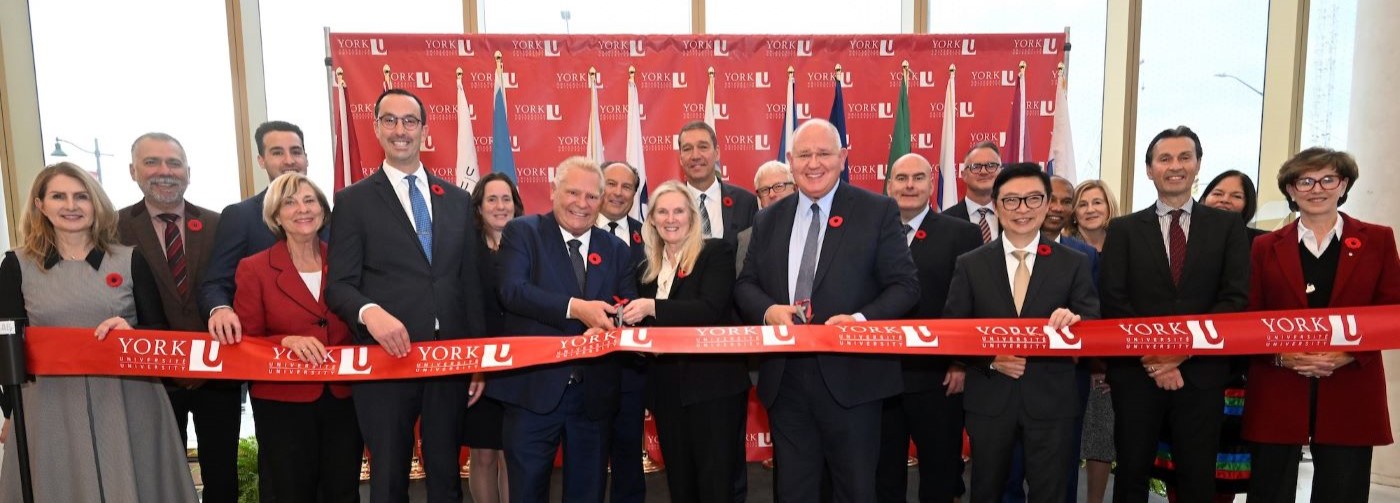Unpacking the power of gospel music to Black history
York University expert is available to explain gospel music popularity and history
TORONTO, February 10, 2020 – Gospel music is so ingrained in pop culture today that gospel choirs are everywhere from the Superbowl and Grammys to detergent and car commercials, says Karen Burke, one of Canada’s leading authorities on gospel music’s history and performance practices.
 Burke, an associate professor in York University’s School of the Arts, Media, Performance & Design, will be among several gospel, spoken word, jazz and R&B performances at the Faculty of Education’s Black History Month event. The event, Word, Sound, Power: Black Artistic Expression, will be held on Wednesday, February 12, 2020.
Burke, an associate professor in York University’s School of the Arts, Media, Performance & Design, will be among several gospel, spoken word, jazz and R&B performances at the Faculty of Education’s Black History Month event. The event, Word, Sound, Power: Black Artistic Expression, will be held on Wednesday, February 12, 2020.
With musicians from pop star Justin Bieber to rapper Kanye West belting out gospel music, the origins of gospel music easily could be forgotten. Gospel music began as spiritual songs, sung by enslaved African Black people in the U.S. The songs were peppered with concealed messages of survival and plans to escape from the slave owners.
“Gospel music is an important tool to understand the depth of Black history, and the gospel music community in Canada today is a big vibrant and diverse community,” says Burke, who is organizing musical performances and directing the York University Gospel Choir at the event.
A singer, choral director and composer, Burke started Canada’s first university gospel music course at York in 2005.
“Gospel choirs are used all the time to emphasize important events, like at the Grammys or the Oscars or Meghan Markle’s wedding,” says Burke. “The hydraulic lift goes up and there’s the gospel choir hoisted in the air and the energy is electric.”
The event is hosted by the Jean Augustine Chair in Education, Community & Diaspora, currently held by Professor Carl James.
Of the event’s theme, James says gospel music is quite culturally relevant to Black history, adding that “gospel music was central to the colonial project and hence a part of life for enslaved African Black people in the West. But while the music is rooted in Christian spirituality, it’s important to remember that Black people are not all Christians, so we will all have a different relationship to the music.”
WHAT: Faculty of Education’s Word, Sound, Power: Black Artistic Expression Black History Month event
WHEN and WHERE: Wednesday, February 12, 5:30 p.m. to 6:45 p.m. reception (Martin Family Lounge, 2nd Floor Accolade East, 7 p.m. to 9:30 p.m. performances (Tribute Communities Recital Hall, Accolade East Building, at York’s Keele Campus (see #92 on this Map).
NOTE: Members of the public are required to RSVP as space is limited. Members of the media should RSVP to the contact below.
York University champions new ways of thinking that drive teaching and research excellence. Our students receive the education they need to create big ideas that make an impact on the world. Meaningful and sometimes unexpected careers result from cross-disciplinary programming, innovative course design and diverse experiential learning opportunities. York students and graduates push limits, achieve goals and find solutions to the world’s most pressing social challenges, empowered by a strong community that opens minds. York U is an internationally recognized research university – our 11 faculties and 25 research centres have partnerships with 200+ leading universities worldwide. Located in Toronto, York is the third largest university in Canada, with a strong community of 53,000 students, 7,000 faculty and administrative staff, and more than 300,000 alumni.
York U’s fully bilingual Glendon Campus is home to Southern Ontario’s Centre of Excellence for French Language and Bilingual Postsecondary Education.
Media Contact: Vanessa Thompson, York University Media Relations, 647-654-9452, vthomps@yorku.ca






